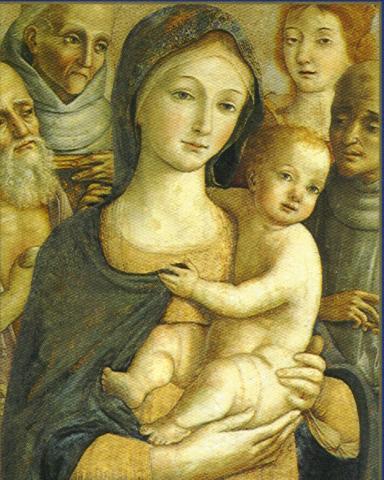This is the title given to St. Athanasius whose day we celebrate on the 2nd May.
When we recite the Nicene Creed at Mass have we ever spared a thought for those who gave us this Creed and defended it in the early Church? Although it was adopted by the Council of Nicaea in 325, to uphold it in the fourth century according to St. Athanasius brought dreadful sufferings beyond endurance. "For the treatment we have undergone surpasses the bitterness of any persecution."
Why was this so? The emperor Constantine who ended the persecution of Christians with the Edict of Milan in 313 AD was determined to use the Church for the well being of his empire. However he soon realised that there were conflicts of beliefs in the Church and consequently summoned bishops to Nicaea to formulate Christian doctrine.
The most prevalent heresies of that time were Manichaeism (dual gods good and evil), Macedonianism (denied the divinity of the Holy Spirit and Arianism (denied that the Word, which became flesh had existed since eternity with the Father). Of these the greatest threat was from Arianism. In 319 this heresy appeared in Alexandria, taught by a priest called Arius. He and his supporters ran amok in the city, chanting "there was a time when he was not." So heretical was this teaching that it absorbed the debate of this first ecumenical Christian Council.
Amongst those bishops attending Nicaea was Pope Alexander from Alexandria, accompanied by his young deacon Athanasius. It was he, following in the footsteps of some of the most brilliant theologians of the Alexandrian catechetical school such as Clement and Origen, who could see immediately that the main issue was over the essence or substance of the Father and Son. Arius denied that God the Son is of the same substance (homoousios) of the Father. The Council agreed with Athanasius who at the early age of twenty-one had already stated this orthodox belief in De Incarnatione. His teaching was thus reflected in the creed drawn up afterwards, part of which is:
WE BELIEVE IN ONE LORD JESUS CHRIST, THE ONLY BEGOTTEN SON, BORN OF THE FATHER BEFORE ALL AGES; LIGHT OF LIGHT; VERY GOD OF VERY GOD; BEGOTTEN NOT CREATED; CONSUBSTANTIAL WITH THE FATHER; BY WHOM WERE ALL THINGS MADE.
Arius and his supporting bishops were excommunicated and exiled, and one would have thought that would be the end of the matter. But no, the Arian controversy did not disappear, and for the next fifty years it was the Orthodox faith that was sorely tested.
Athanasius who had joined Antony in the desert after Nicaea succeeded Alexander in 328, and he persuaded Antony to preach against Arianism in Alexandria. Shortly afterwards Constantine directed Athanasius to lift the ex-communication against Arius. Athanasius replied, "Whoever is excommunicated by an ecumenical Council, must be reinstated in the same way - for the Church decrees, that who has authority to bind, is the only one who may unbind." Constantine impressed by the qualities of Athanasius did not press him on this issue. But the Arian leader, Eusebius, bishop of Nicomedia, did. He was determined to oust the bishops who championed the Nicene Creed. A synod held in 335 at Tyre was hostile to Athanasius and so Eusebius had Athanasius ex-communicated and exiled as he had the bishops of Antioch and Ancyra.
After Constantine's death, his son Constantius II was emperor. Soon Arians had his support, and the exiled bishops withdrew to the West where they were welcomed to Communion by Pope Julius, and given hospitality by noble women. In return for the latter, Athanasius instructed those remarkable Roman noble ladies on Aventine Hill in the Faith and the principles of Antony's monasticism. After Eusebius' death in 342, pressure from other Greek bishops, enabled Athanasius to return to his see in 346 and he began the longest single period in Alexandria. However another Arian bishop, Valens won Constantius's ear and the feud resumed. At the synod at Milan (355) Constantius demanded bishops to condemn Athanasius under the threat of exile, but some (e.g. Hilary of Poitiers, Dionysius of Milan and Liberius of Rome) chose exile rather than betray Athanasius. Athanasius fled to the monks in the desert from where he wrote pamphlets against the Emperor and his Arian advisers.
Julian succeeded Constantius in 361, determined to revive paganism, and thus unconcerned about Christianity squabbles. So Athanasius in 362 returned to Alexandria where he summoned a council to elucidate the Orthodox teaching on the Trinity, that the three persons are of the same substance.
Athanasius died in 373, but his cause was continued by the Cappadocian Fathers and finally by the new Emperor Theodosius who confirmed the Nicene Creed and outlawed Arianism at the Council of Constantinople in 381.
Marianne Dorman
